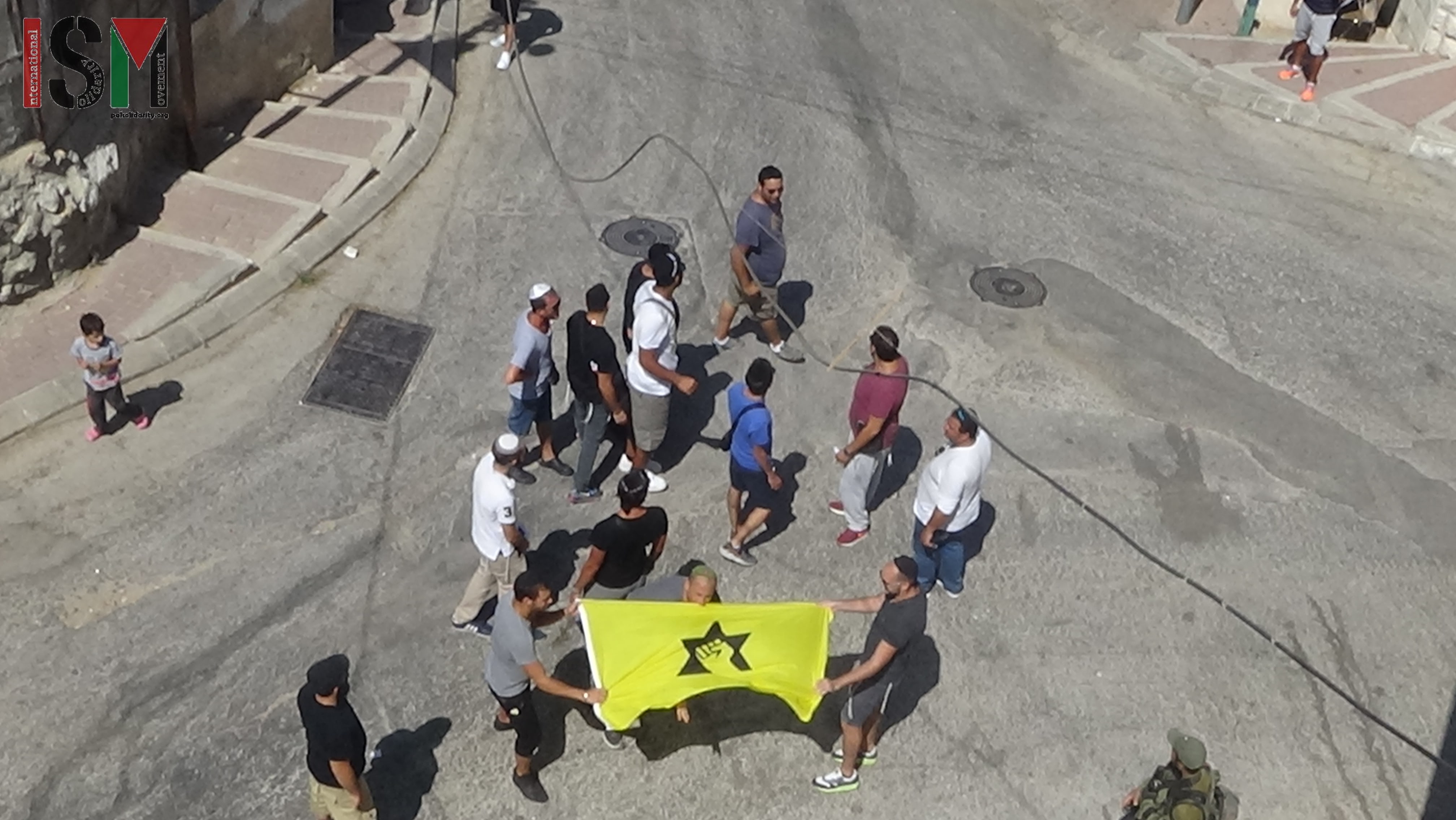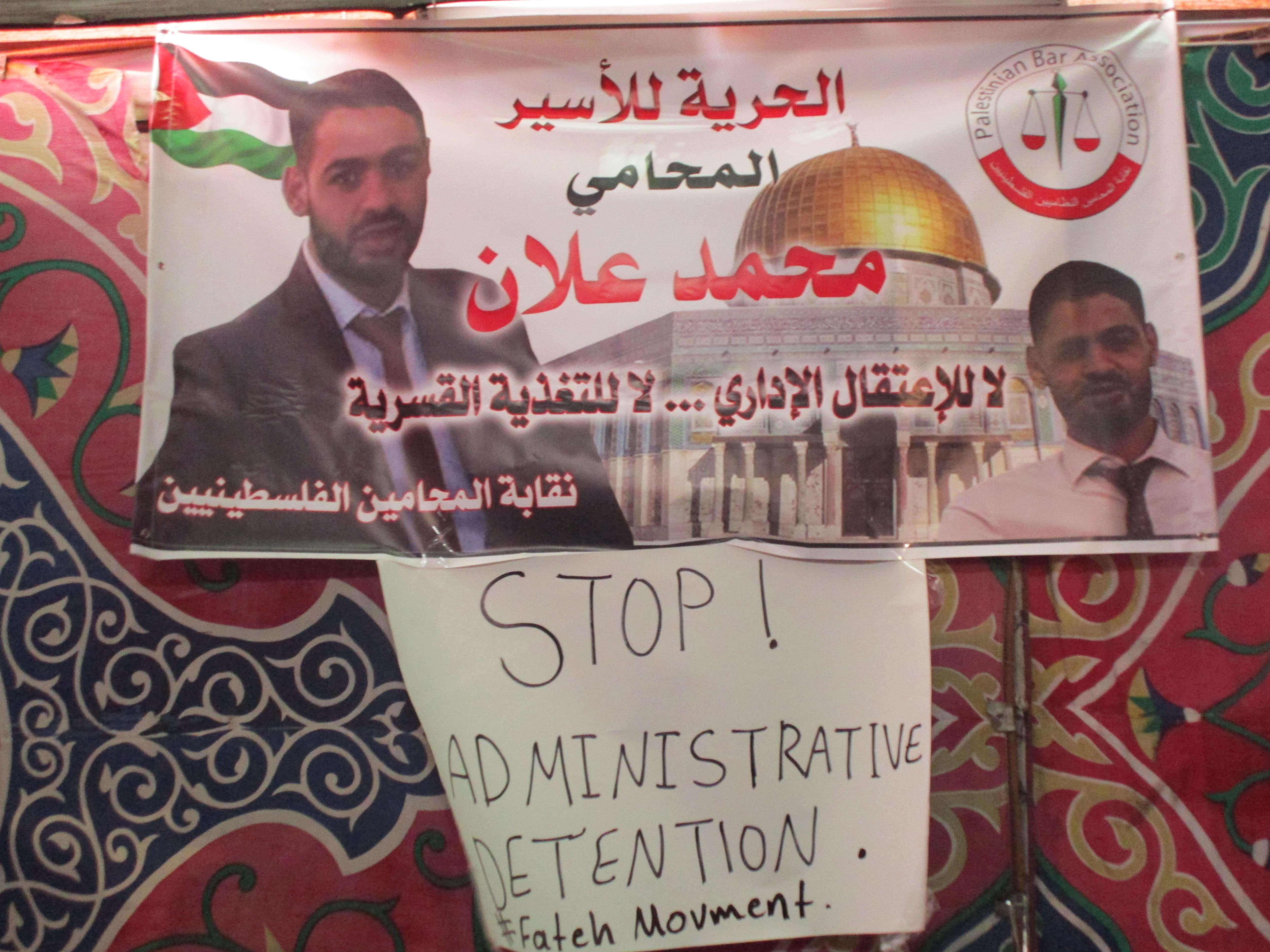Category: Hebron
-
Continual harrassment, threatening and intimidation of Palestinian family by settlers in Hebron
25th August 2015 | International Solidarity Movement, al-Khalil Team | Hebron, Occupied Palestine The Palestinian Abu Rajab family in the occupied West Bank city of al-Khalil (Hebron) is facing continual intimidation by groups of settlers and Israeli forces protecting these settlers in their attempts to take over the Abu Rajab family home. In the last…
-
Extreme right-wing zionists with the Kahane group attack Palestinians and international activists in Hebron
20th August 2015 | International Solidarity Movement, al-Khalil Team |Hebron, Occupied Palestine A group of twenty-five extreme Jewish zionists from France attacked three international activists in front of the shops near the Ibrahimi Mosque in Hebron, H2 area this afternoon. When the activists encountered the group of extremists, the extremist started to clap their hands…
-
Palestinian lawyers went on hunger strike in solidarity with Mohammed Allan and to protest against administrative detention
20th August 2015 | International Solidarity Movement, al-Khalil Team |Hebron, Occupied Palestine Last Tuesday Palestinian lawyers went on a hunger strike. Hatem Shahin, vice-president of the Palestinian Bar Association for lawyers, explains why thirteen of the Association’s members decided to take this radical step: “The main goals are to break the isolation of the Palestinian prisoners…



